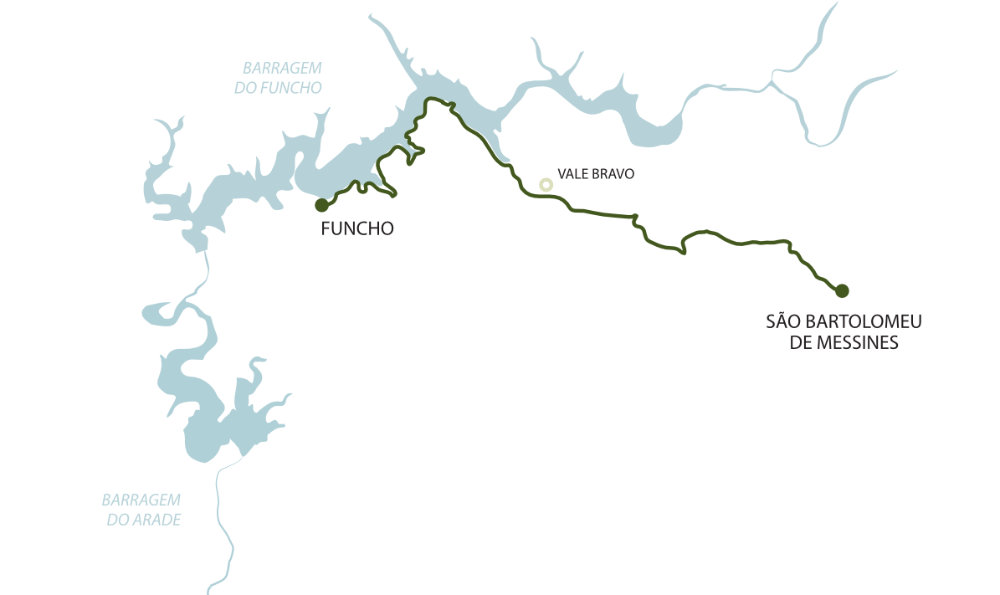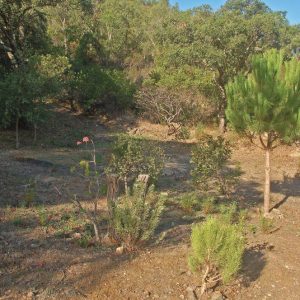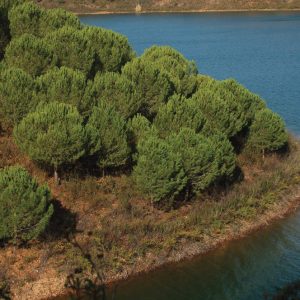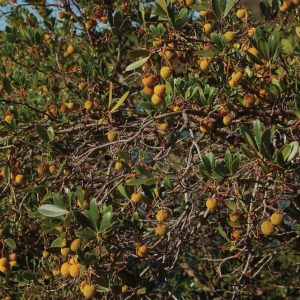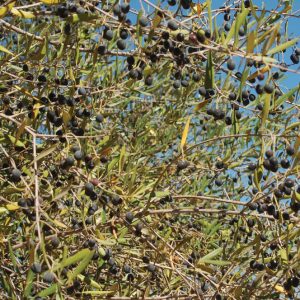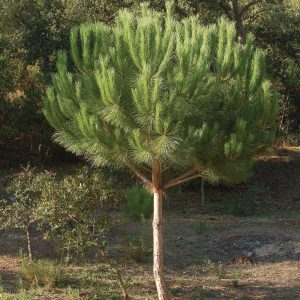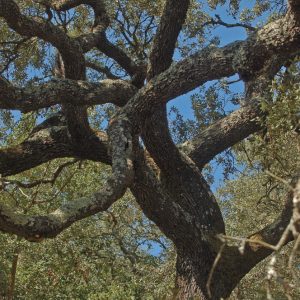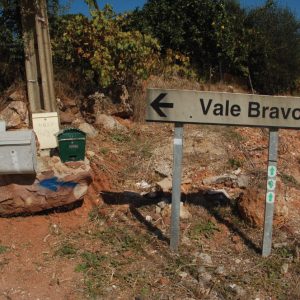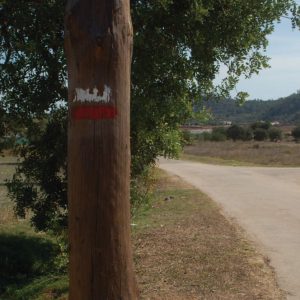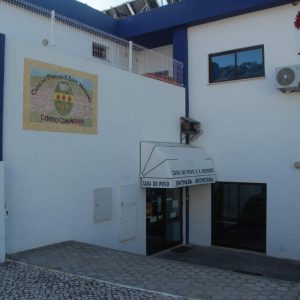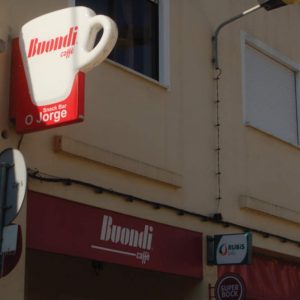São Bartolomeu de Messines is the town associated with the writer, educator and legal expert João de Deus Ramos, who was born here in 1830 and went on to gain nation-wide fame at the time with his educational programme for children and adults. He studied law in Coimbra and died in 1896 in Lisbon. This is what I read when I reach the Casa do Povo, the House of the People. Carved in stone. I might be wrong but I’m under the impression that Messines wants to be more than just one of seven communities forming part of the former capital of the Algarve. Assuming I’m not wrong, Messines would like to be a district town, with more independence from Silves. But maybe I’m mistaken …
Yet, it’s a bit over 15 km to Messines still. Which is how I start my third day of the way from the picnic area at the end of the Funcho reservoir lake, on my own. A rural lane used both by the fire service and jeep safaris leads all the way to Furadouro, slightly out of town on the other side of the railway tracks. For the 5 o’clock Alfa Pendular morning train coming from Porto in the north reaches the Algarve here at eleven o’clock already. It’s another half hour to Faro, where the fast train, reaching occasional speeds of 220 km/h, reaches its destination. At the pedestrian crossing you’re asked to Stop, Look out and Listen (Pare, Escute e Olhe) well before the station.
The day begins and I am noticing a much higher degree of diversity than on the previous days. After six kilometres I reach a reforestation project with umbrella pines, also in the shape of a monoculture but at least featuring a native tree species. They have been planted along both the northern and the southern lake shore. The way is lined by cork oaks, holm oaks and all kinds of different shrubs.
Built in the 1960s with the help of German engineering knowhow, the lake stretches out along over ten kilometres. Here, the Via hugs the shore of the lake and is of an enchanting beauty. Unfortunately the German engineering prowess forgot the turbines for the production of clean electricity. On the southwestern shore of the lake, three families occupy pretty houses with access to the lake. Coming from a westerly direction, heading east, walkers are soon back to their own company. The silence and the short waves breaking on the shore are the only sounds I am experiencing. I notice the return of the birds though. There are hardly any flies to torment the hiker. Involuntarily for sure, but insects are providing a good staple nutrition for birds. This is also a region that can feed itself and hosts a healthy local economy. Messines has an olive oil mill, one of the four existing olive oil mills remaining in the Algarve: the others are in Monchique, Moncarapacho and São Bras Alportel.
The oaks, most of them cork oaks lining the shore are generously offering up their presents to me, in the shape of acorns on the ground along my trail. And they are big, chunky, plump, long, slim and dark acorns, with and without their pipe, shed by the trees, as their roots provide them with enough water to be able to live a healthy life. The ground is littered with acorns. After only a short time both my trouser pockets are bulging. The sheer amount of different oak species still standing here growing wild is surprising, as the forest fires of Monchique had advanced to here too. The Funcho Lake is probably the most beautiful of all the dammed reservoirs of the Algarve. A sense of calm reigns over the lake, rubbing off onto those visiting. Sometimes I just stand completely still and listen to, and into nature.
After eight kilometres, the trail leads away from the shore. The path broadens now, and is used by the odd car too. At some point the trail turns into a tarred road leading into the Vale Bravo and via Pedreiras to Barradas and Furadouro. Over the last three kilometres, this stretch of the Via Algarviana runs on tarred roads. Letterboxes belonging to many lonesome souls hang at crossroads and make the job of the postal workers easier, to deliver mail to the houses spread out in nature. Something is slowly changing, and all of a sudden it’s upon you. The volume starts going up with the car traffic, engine noise in all its splendid glory. Going over the pedestrian railway crossing takes me to the Casa do Povo and the Café Jorge right beside it. The town has hung on to its coarse charm as a centre for agriculture and agricultural machinery. Merchants with repair workshops for agricultural machines, a local market and lively traffic show the visitor that this community with its 8,000 inhabitants can still get by without tourism.
In the Casa do Povo, where children are looked after in a kindergarden, pupils are getting extra lessons, sport events take place and which features a cafeteria as well, hikers too may find accommodation. The first floor has five en-suite rooms. Each room has four beds. Staying the night costs 20 euros without breakfast. I test the hot showers and am happy to see that they do yield hot water. Clean bedsheets and fresh linen take the hiker back to a world of civilisation. The Casa do Povo of Messines is a truly useful home for the citizens of the community, and on top of that creates 20 jobs. Incredible but true, the spirit of this House of the People is unique in the Algarve.
 Eco123 Revista da Economia e Ecologia
Eco123 Revista da Economia e Ecologia

